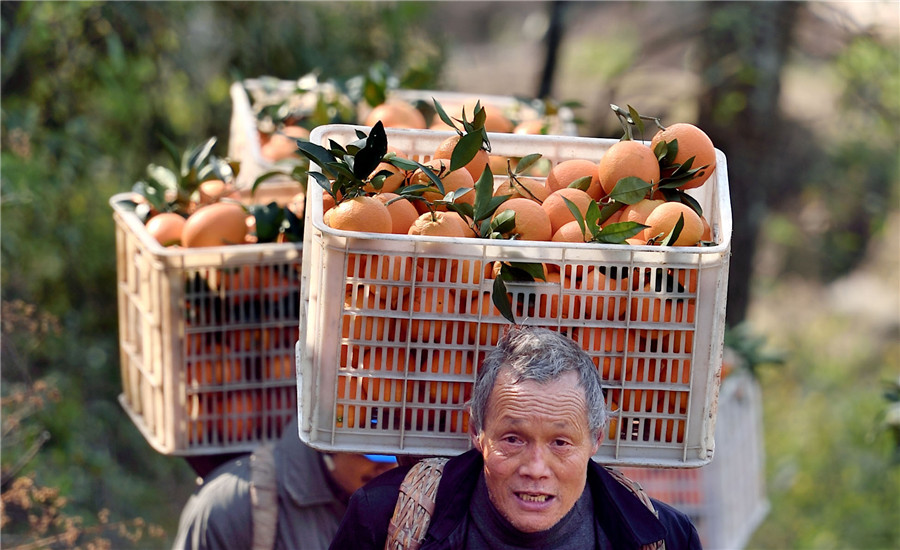







|
 |
|
Hu Xueping carries a basket of navel oranges on his back. [Photo by Liu Shusong/for chinadaily.com.cn] |
For Hu Xueping and his fellow villagers, the road to prosperity had been blocked by a 300-meter-wide canyon for quite some time. Now, the villagers see the hope of a better life after a cableway was built, connecting the small village with the outside world, reported Hubei Daily.
Hu, 63, is a resident in Qinghaoyu village of Zigui city, Hubei province, and the eight households there make their living by planting navel oranges.
In the past, the villagers had to carry their produce on their backs and walk the 1-km-long precipitous road to sell them. The road is so treacherous that many villagers hurt themselves when walking the road.
And the cost for hiring someone to transport the navel oranges is 300 yuan ($57.7) a day, compared with the 400 yuan in revenue for 400kg of naval oranges last year, let alone the difficulty of finding people to do the job. Last year, the snowy and icy weather damaged more than 2,500kg of navel oranges before they could be transported out timely.
Transport cost for a mule is also high and the plan to build a road was denied because some villagers were reluctant to see their lands taken away.
In 2014, Hu Xueping decided to build a cableway himself. His younger brother Hu Xueman, who lost both arms, also joined him in building the cableway.
They leveled the field, built an operation room and carried cables to the other side of the canyon, which was the most difficult part of the project.
After the cable was set up, they found it could not operate normally due to low voltage. Fortunately, a local power company, after learning about the situation, arranged staff to set up a transformer and built a 2-km-long power transmission line for the villagers.
On Dec 6, after more than two years' construction, the cableway transported the first basket of navel oranges out of the village. Compared with manual transport, the cableway takes only a quarter of the time at less than one tenth of the cost.
With the price of navel oranges rising this year, villagers see the hope of brighter prospects. Yi Renzi, a villager who used to work in cities like many rural youths, said he would stay at home and take care of the orange trees.